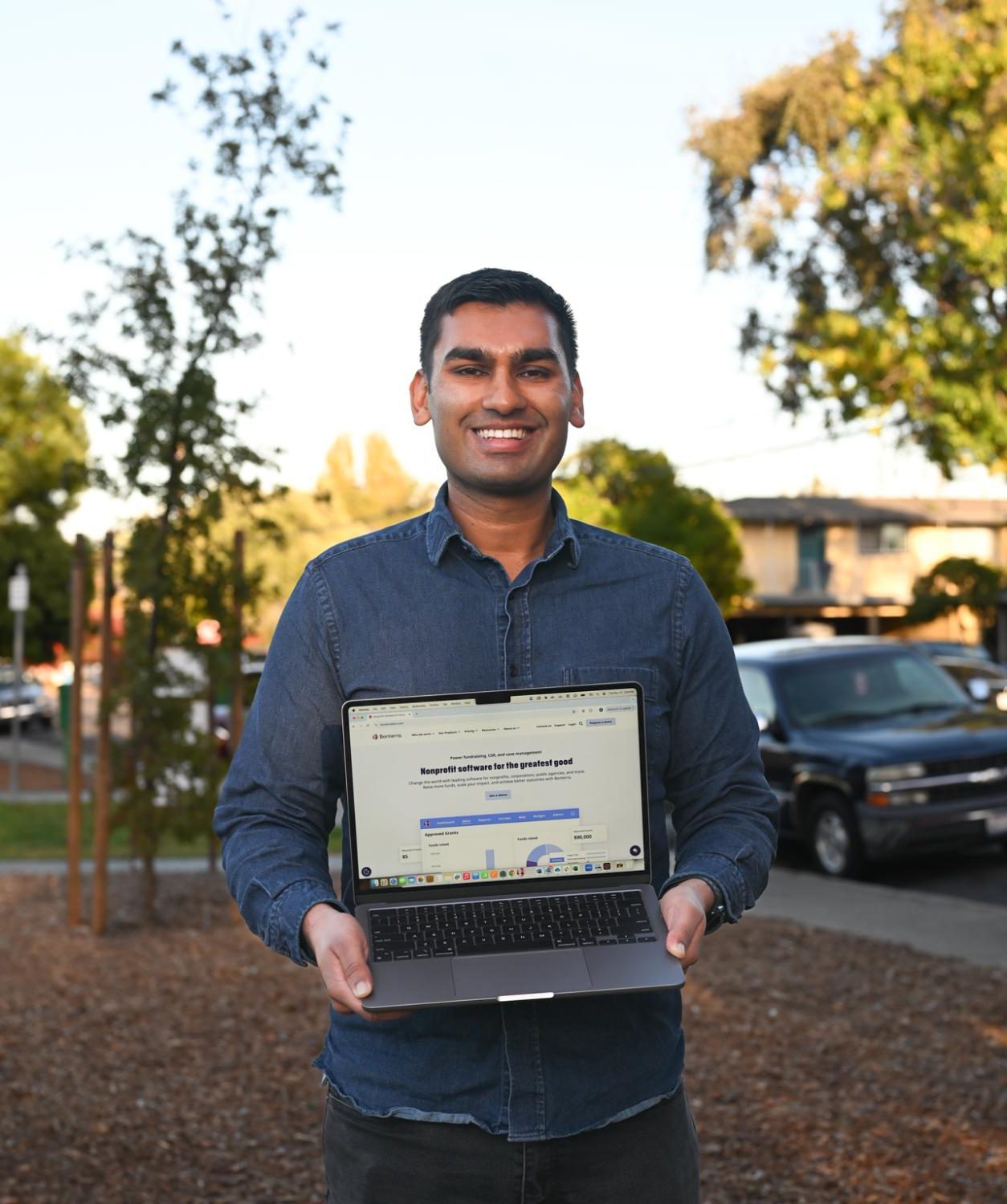A master of software development and workplace administration, Chief of Staff to the Chief Technology Officer at Bonterra Rohan Chandra (’13) uses his expertise of programming and social networking to lead a team of 200 software engineers and product specialists focused on helping nonprofits tackle one of their biggest challenges: funding.
Using artificial intelligence (AI) and cloud computing, Chandra supports the team that coded a feature for translating an organization’s goals to a grant specifically targeted at the funders.
I’m starting to lead some of our AI initiatives,” Chandra said. “I’m thinking about, internally, how we can better utilize AI for productivity, and externally, how we can use AI to create features that benefit customers.”
After taking Harker’s computer science classes, Chandra developed an interest in the rising influence of technology in a business setting. He pursued this passion beyond high school at Brown University, where he studied Computer Science and Anthropology. Chandra’s education and experience ultimately landed him a job at Amazon, where he worked on privacy aspects of Amazon’s Alexa. Most recently, Chandra completed his MBA/MPA dual degree at The Wharton School and Harvard Kennedy School.
“We were creating features for customers to feel more comfortable using Alexa and working alongside policymakers as well,” Chandra said. “That also got me really interested in creating tech more for people’s privacy and also for political policy.”
Now at Bonterra, Chandra advises the team that created an app allowing project leads to communicate and appeal more to donors and funders. Navigating this process is often a major obstacle for smaller charities seeking to achieve their desired change.
“We created an AI grant writing feature, a tool that helps nonprofits write grants to be very targeted towards the funder that they’re going for,” Chandra said. “You can write the first draft and then use AI’s creativity to target audiences of different sizes and scales. That’s a really powerful way to save time.”
Because of mainstream media, many believe that AI can accomplish any task imaginable; however, there are still restrictions to this new technology, and Chandra’s work helps to address this to the public.
“I need to understand the technologies at a really deep level, which I’m just starting to do,” Chandra said. “Translating that toward a business audience is also really challenging. People who don’t have a technical understanding might think, ‘I’ve seen AI do this, I’ve seen AI do that,’ but when you get into the nitty-gritty of what the limitations are, you start to see, ‘We can’t actually do everything that people are thinking about.’”
Chandra also oversees business negotiations and company strategy. He emphasizes a healthy workplace environment, considering the personal backgrounds and varying skill sets of different employees.
“Our company is actually 10 different companies merged together, and all those 10 companies have very different cultures,” Chandra said. “I have my eyes and ears on the ground, chatting with lots of different folks and understanding how they are doing.”
With experience in software engineering at Amazon and administrating as Chief of Staff at Bonterra, Chandra aspires to take on even higher roles so he can reach a wider audience. Chandra hopes to serve as many people as he can in his current position and beyond, leveraging his knowledge of cutting-edge technologies like AI.
“A lot of people think of their careers as very linear, but I see it more as a squiggly line,” Chandra said. “You might level up in one aspect of your career, you might take a lateral jump, and then you might even go take a step down, but that’ll propel you to go up somewhere else. Being open to different opportunities that come is really valuable, and that’s all I plan to do.”



